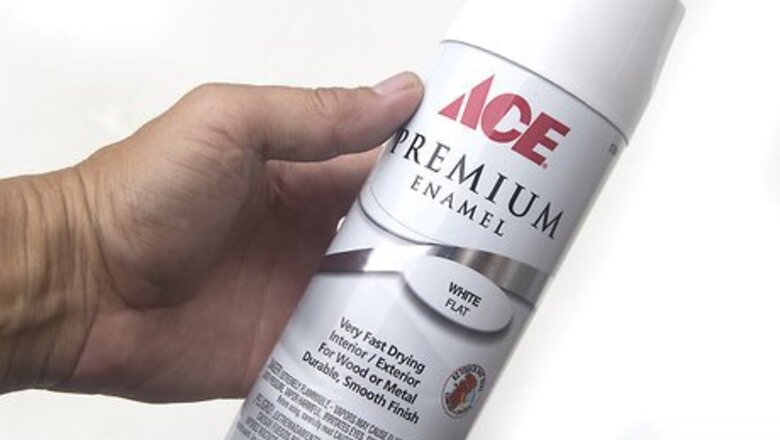
views
Painting Your Stove
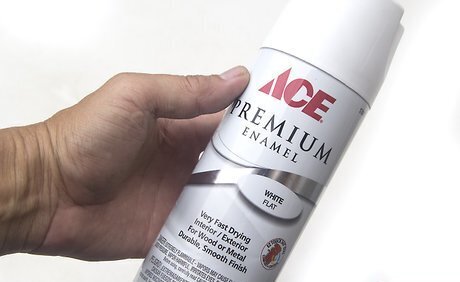
Select a type of enamel paint. Choose an enamel paint specifically made for stoves to ensure it is properly heat-resistant. Oil-based enamel paints can take between 8 and 24 hours to dry fully. Water-based enamels feel dry to the touch in an hour but may take up to a month to fully set, so unless you don't need to touch or use your stove for a while, select an oil-based variety. Enamel paints are designed to last longer than other types of paint, and they withstand abrasion very well, which is why they're ideal for using on a stove. These days, most enamels are water-based, although you may still find some oil-based enamel paints available.
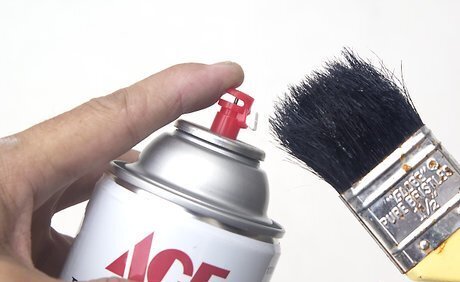
Choose your application method. Enamel paint can be applied with rolls or brushes or by spray painting it onto the surface. Choosing paint you can brush on allows you to customize the color, as it can be mixed to your liking, as well as the finish (e.g., glossy or matte). If you choose spray paint, you'll have to pick from the colors available in the store unless you use a sprayer with the right gun tip, which will enable you to mix colors.
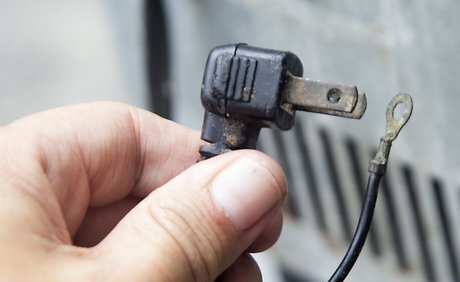
Unplug and move your stove. Unplug your stove from the outlet and move it to an area where it'll be easy to access all sides of the appliance. You may want to use masking tape to keep the oven door closed while moving the appliance. Lay down a drop cloth before moving the stove to this area to prevent paint drips or splashes from ruining your floor. Make sure your stove is completely cooled if you have used it recently before beginning to paint. If you have a gas stove, make sure that you turn off the gas and unhook it safely.
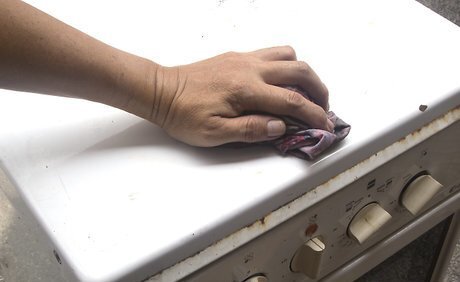
Clean the stove. It's important that all grease and grime be removed from the appliance before you paint. Dip a rag in a mixture of mild soap, degreaser, and warm water and scrub the surface of the stove. You can also use mineral spirits to remove stuck-on food or oil. Before you paint any surface, it has to be completely free of any grease, dust, or dirt. Otherwise, the paint may not adhere properly.
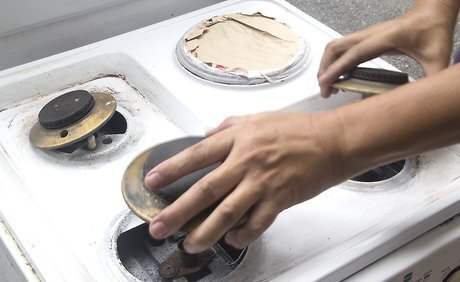
Remove or mask the parts you can't paint. Take out the electrical elements, stove grates, and burner-pan liners. Use masking tape to protect knobs, buttons, hinges, logos, or other things that can't be removed before painting.
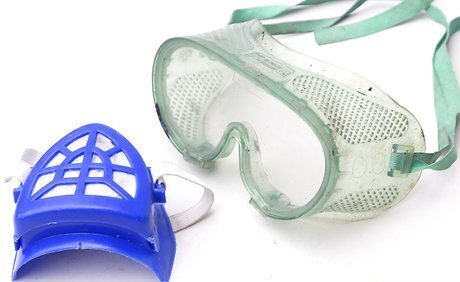
Wear a mask and ensure the area is well-ventilated. It's important that you take the proper safety precautions when working with enamel paint. Since you'll likely want to paint the stove inside your kitchen, open several windows and place a fan near a window to draw the fumes outside. If possible, paint your stove outdoors so that the fumes can easily dissipate.
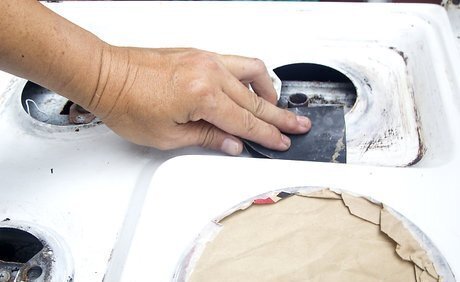
Rough up the surface with sandpaper. Once your appliance is dry, you'll need to rough up the existing finish in order to give the new paint a surface to adhere to. You can use 150-grit sandpaper or steel wool to get rid of rust and paint on the appliance. This is an essential step, and if you skip it, your paint job will likely not come out smoothly and cleanly. You don't need to remove all the paint, you just need to scuff up the surface enough to remove the smooth finish. Wipe the stove down with mineral spirits after each sanding.
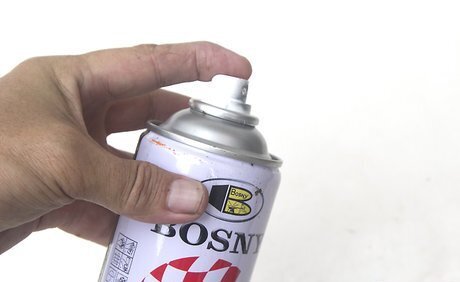
Use a primer if you are covering a dark color with a light color. If you are changing your stove from black to white, for instance, you'll need to prime the stove before painting it. A spray-painted primer is the easiest to apply, so opt for that over a can of paint you'll need to roll on. Use short, even, strokes and keep the spray can moving to avoid building up puddles or drips.
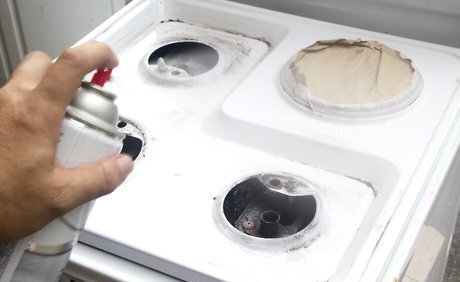
Apply two thin coats of paint. Thoroughly stir or shake the paint before applying. Then, roll, brush, or spray the paint onto the appliance. Use long, straight strokes to apply a thin coat. Be sure to allow each coat to dry before adding another coat. Two thin coats will ensure an even surface and appearance, while one heavy coat may peel off. Hold the spray can 12-18 inches (30-46 cm) from the surface. Consult your paint for the recommended drying time.
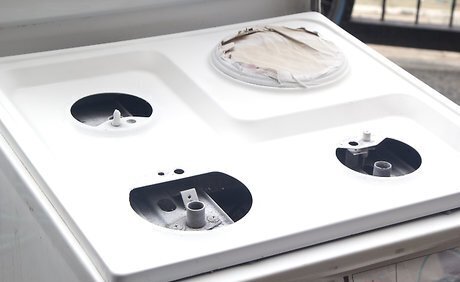
Allow the paint to air dry. Read the instructions on the paint to figure out how long your appliance needs to dry. Resist the urge to move it back inside when it feels dry to the touch, if the recommended amount of drying time hasn't passed.
Repairing Chips in the Enamel
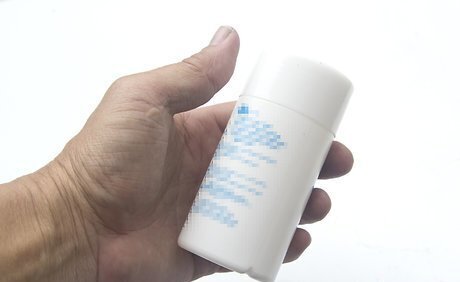
Pick up a porcelain enamel repair kit. Select a repair kit in a color that matches your appliance as closely as possible. Hardware stores, home improvement stores, appliance outlets, and even paint stores carry these repair kits for between $10 and $20. You can also find them online, perhaps from the manufacturer of your stove, which will give you an exact color match.
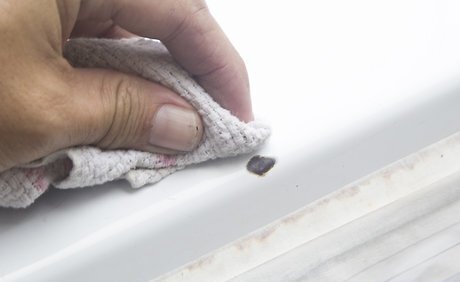
Wash and dry the area to be repaired. Use mild soap and water to remove any food, dirt, or grime from the stove. If you've got a stubborn stain, apply mineral spirits to a rag and scrub the area. Wash your hands afterwards. You may need to use a degreaser.
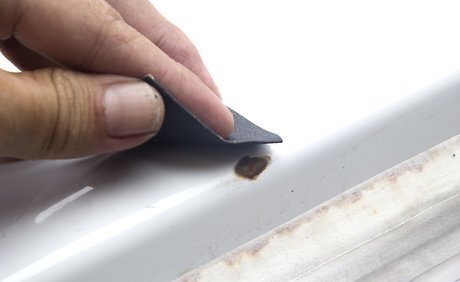
Sand down the damage. Use 400-grit sandpaper to sand the area around the scratch or chip. Wipe down the area with a damp rag to remove any dust and allow it to dry before continuing.
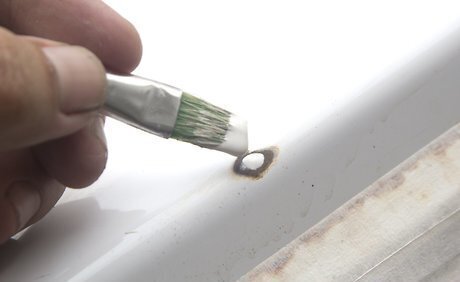
Apply the enamel paint. Shake the paint well before opening. Use the applicator included in the kit to brush or dab the paint on the stove. For deep gouges, you may need to let the paint dry and apply another coat until the damaged area is even with the rest of the stove's surface. Use a dry rag to clean off any drips as you work. You may need to apply 3-4 coats to damaged areas to get them even.
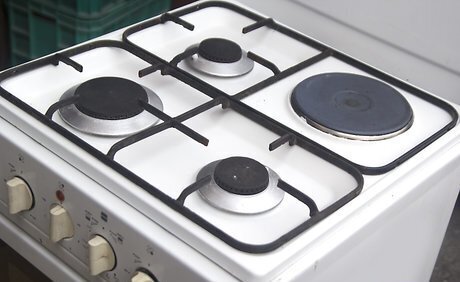
Allow the paint to dry. Follow the instructions given in the repair kit regarding drying time for the paint. This can range from 1 to 24 hours, so be prepared to use other appliances, like the microwave, for cooking meals until your appliance is ready to use.

















Comments
0 comment